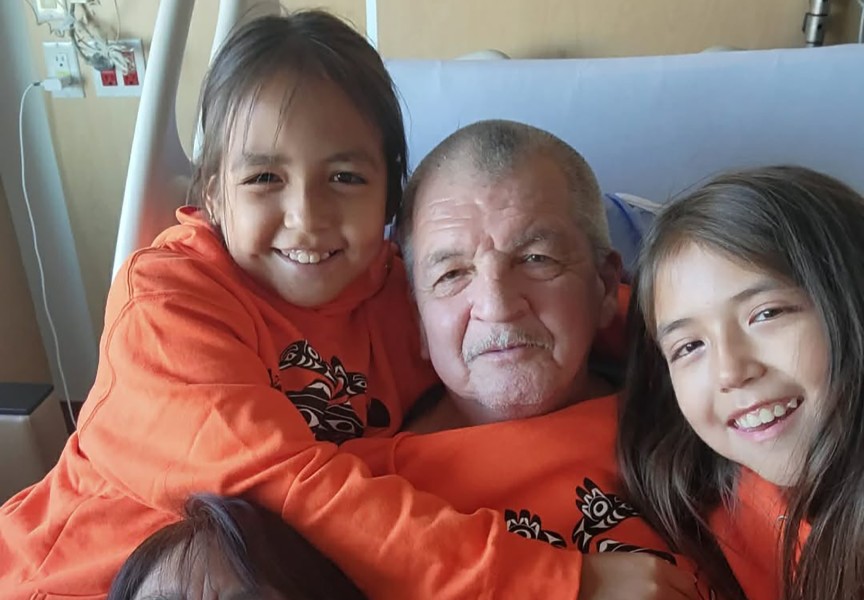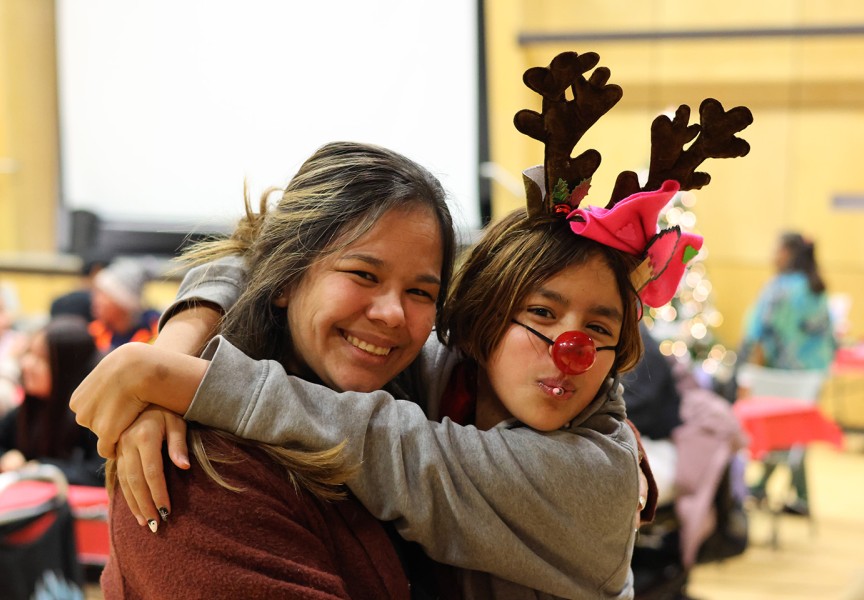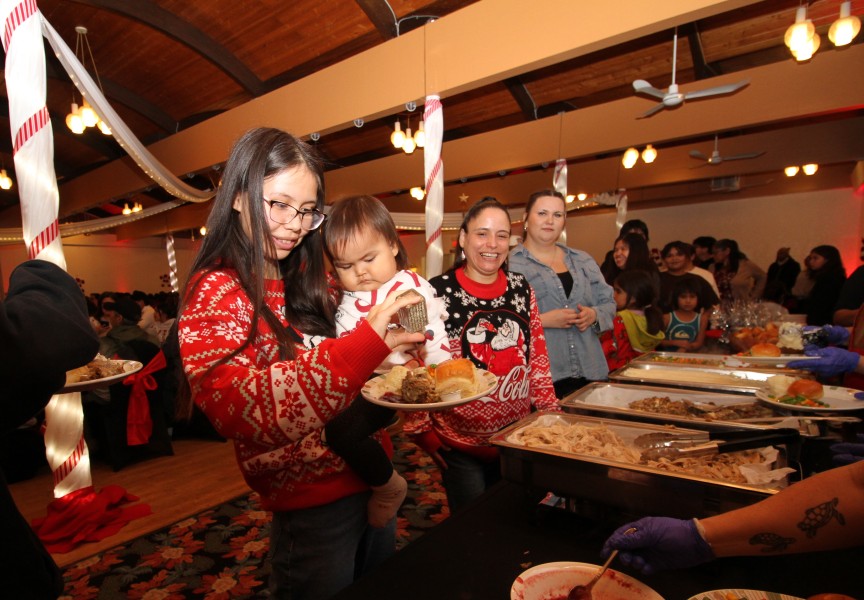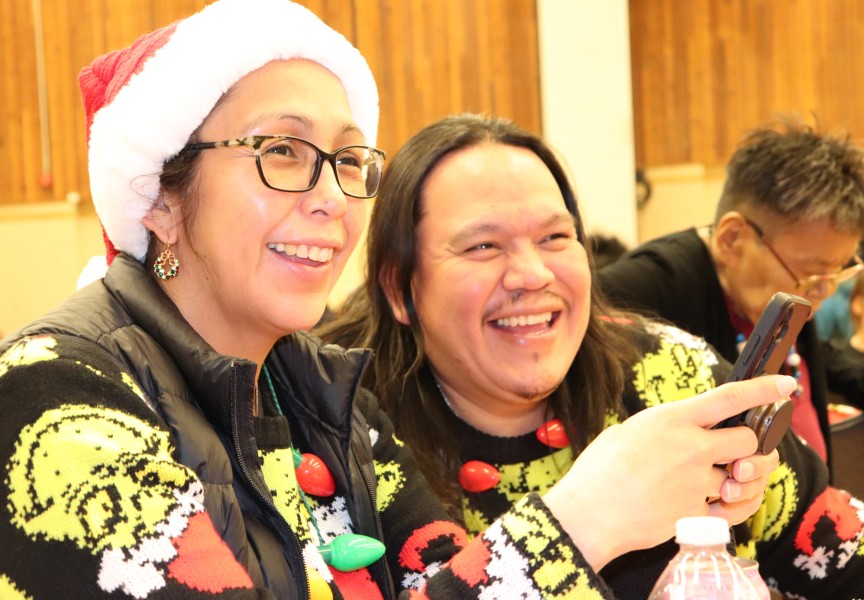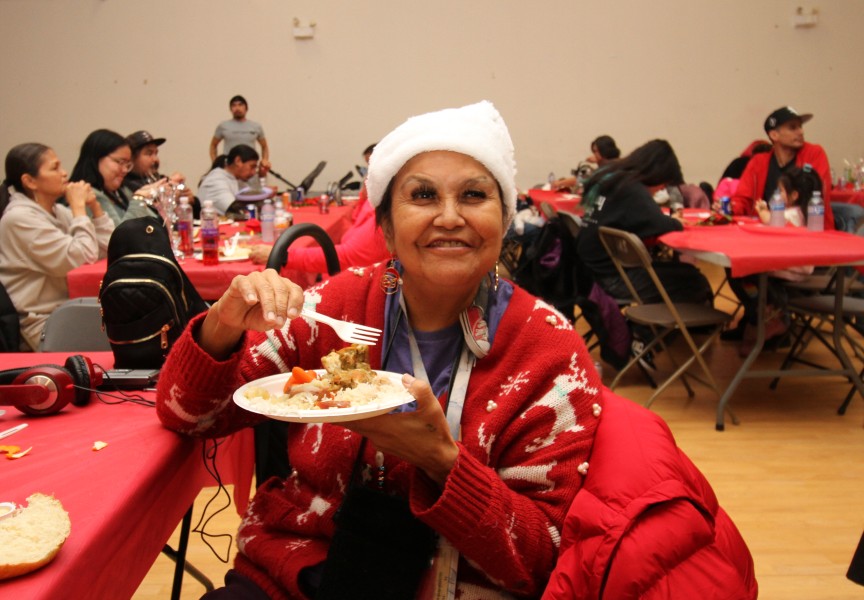The last known mature bull of its herd is among the casualties in the most recent slaughter of elk under investigation in Nuu-chah-nulth territories, bringing the number to six unsanctioned kills since November 2014.
“That we know of,” said Sergeant Ben York of the Conservation Officer Service, Central Island Zone.
The bull’s remains, along with those of a cow elk, was located at Central Main. Conservation Officer Brittany Mueller was called out to the site this past week to investigate.
“The whole herd is going to suffer,” said Ucluelet elder Larry Baird, with the strength in the DNA of that bull indiscriminately snuffed out. The other elk remains were located at Museum Main, Coleman Main, Darling Main and Klawana. In all but the Klawana kill, in which only the front quarters were taken, all of the meat was removed from the kill sites.
The elk meat is not showing up on community tables, said York. That means the poachers are trafficking the meat to willing buyers outside of the community.
“It’s a crime against the land, the people and the animals,” said York. “It’s not acceptable.”
Nuu-chah-nulth Tribal Council President Debra Foxcroft and Vice-president Ken Watts, as well as representatives from Nuu-chah-nulth Nations, met with conservation officers Jan. 16 in Port Alberni to discuss what can be done further to put an end to the poaching.
The 14 Nations of the tribal council pooled resources in December 2013 to offer a reward for the capture and conviction of those who slaughtered elk within the territory. That reward remains in effect.
It was originally $25,000, to be distributed among those who provide information to Conservation Officers that led to a conviction, but grew to more than $30,000 when local hunters expressed outrage at the illegal act. There were 17 elk taken from herds then. Now, six more.
York tells Ha-Shilth-Sa that currently he is awaiting the approval of charges against some suspects under both provincial and treaty law. Nuu-chah-nulth nations have been clear that any unsanctioned hunting in their territories will not be tolerated, whoever is involved.
“Our First Nations are committed to finding those who are guilty of such crimes, regardless of who they are, and having them charged and convicted,” said Watts. “The acts of those poachers, those who are slaughtering this precious species, go against Nuu-chah-nulth values and beliefs.”
Hundreds of tips came into the conservation service after the reward was announced. Most of those tips did not move investigations along because there wasn’t enough detail left with them. It’s not enough just to report a name of someone. The service needs details.
He said some people may not feel safe reporting someone they believe may be hunting elk illegally. York said conservation officers can protect the identity of people reporting, can meet people outside of their communities, very much like a CrimeStoppers tip.
Calls can be made to Report All Poachers & Polluters at 1-877-952-7277. It’s a 24-hour hotline, and tipsters are asked to leave as much detail as they know. Don’t self-edit the information. And leave a contact where officers can follow up with you.
The tribal council and the Nations take these elk kills very seriously. They need the people in the communities to be watchful and report incidents or suspicious activities in order to protect the resources in the territories for the benefit of the community and future generations.
The tribal council and the Nations will be meeting regularly to develop and implement further strategy to help quell this most current rash of elk poaching.
There are promising leads, said York, and the service is narrowing its focus, but they need more information and the help of all those who can provide it.


